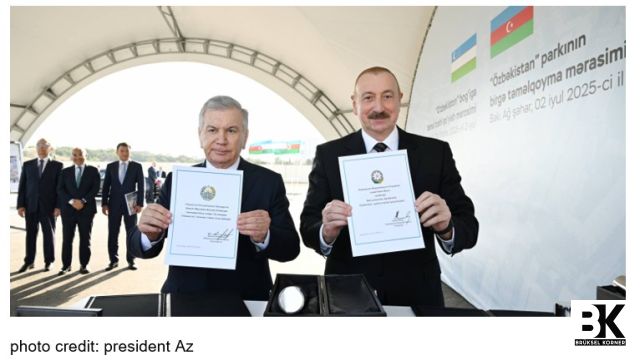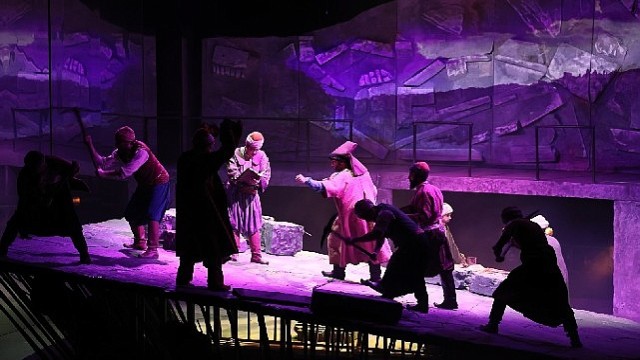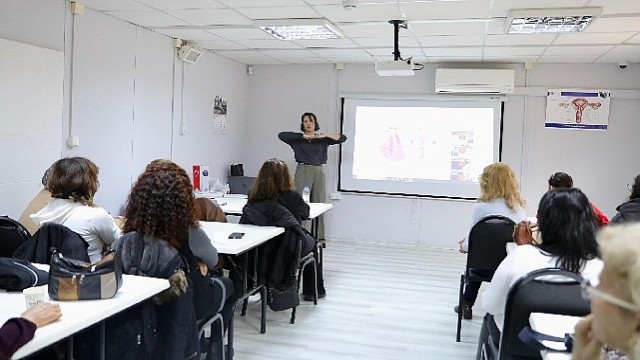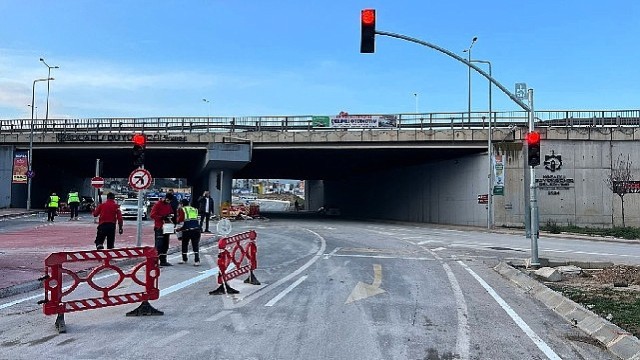Azerbaijan and Turkmenistan: Driving the Middle Corridor Together
Derya SOYSAL
As geopolitical balances shift in the South Caucasus, Azerbaijan is establishing itself as a key player on the international stage. As its global profile rises, Azerbaijan is intensifying collaborations with regions across the world. A pivotal country in the development of the Middle Corridor, Azerbaijan is strengthening its ties with both Europe and Central Asia—including Turkmenistan and Uzbekistan. This underscores its emergence as a cornerstone in the Middle Corridor’s evolution. One could even say that Azerbaijan and Turkmenistan are reshaping Eurasia, as noted by Valiyev, C. (2025, July 31). These two partner nations have become pillars in the development of this strategic route.
Significant agreements have been signed between Azerbaijan, Turkmenistan, and Türkiye in recent years, reflecting Turkmenistan’s active participation in the Middle Corridor.
Thanks to assertive diplomacy, strategic energy resources, and a proactive foreign policy, Azerbaijan is expanding its partnerships worldwide. On June 10, 2025, President Ilham Aliyev met with his Armenian counterpart, Nikol Pashinyan, to discuss a historic peace agreement. This rapprochement reflects a broader trend: a state determined to play a central role in both regional and global affairs.
As the leading power in the South Caucasus, Azerbaijan is drawing closer not only to Europe and neighboring countries like Armenia, but also to Central Asia. On July 2, President Aliyev hosted Uzbek President Shavkat Mirziyoyev, resulting in the signing of 20 bilateral agreements. Additionally, Uzbekistan inaugurated an Uzbek Park in Baku, the Azerbaijani capital. According to Caspian News, the Uzbekistan Park in Baku is expected to become a cultural landmark and a powerful symbol of Turkic unity. It will offer Azerbaijanis and tourists a unique opportunity to experience Uzbek culture firsthand, while also serving as a platform for cultural diplomacy, educational exchange, and people-to-people connection.

photo credit: president Az
Between January and May of this year, trade turnover between Azerbaijan and Uzbekistan more than tripled compared to the same period in 2024, surpassing USD 200 million. The two nations aim to reach USD 1 billion in annual trade and investment. Currently, around 300 joint ventures operate across both countries.
Then, on July 16, 2025, Gurbanguly Berdimuhamedov, Chairman of the Halk Maslahaty of Turkmenistan, visited Azerbaijan following an invitation from President Ilham Aliyev. This visit marked a crucial milestone in the strengthening of Turkmen-Azerbaijani relations.
Minval.az also reported that Türkiye and the European Union are interested in transporting Turkmen gas to Europe via Azerbaijan. However, this would require the construction of a pipeline beneath the Caspian Sea. According to analysts, Azerbaijan is ready to support this initiative.
It is also important to highlight the significance of the Turkmen leader’s visit to Karabakh. Such visits are seen as a demonstration of support for Azerbaijan’s sovereignty and territorial integrity. Berdimuhamedov’s visit to Azerbaijan is considered historic. For the first time, the long-standing Turkmen leader traveled to Baku, marking a major moment in bilateral relations, according to Caspian Post.

photo credit : president Az
In recent years, ties between Azerbaijan and Turkmenistan have grown significantly stronger. A powerful symbol of this rapprochement was the joint development agreement on the “Dostlug” oil and gas field (formerly the disputed Kyapaz/Serdar block) in the Caspian Sea. On January 23, 2021, during a videoconference between Presidents Ilham Aliyev and Gurbanguly Berdimuhamedov, the two countries signed an intergovernmental Memorandum of Understanding on the joint exploration, development, and exploitation of hydrocarbon resources in the Dostlug field, according to Caspian Post.
In March 2021, a natural gas swap agreement was signed between Azerbaijan, Turkmenistan, and Iran. Azerbaijan subsequently purchased Turkmen gas via Iran. However, due to disagreements over pricing, the flow of gas ceased in early 2024. A resolution to this issue is expected following Berdimuhamedov’s visit, according to Valiyev (2025, July 31).
Economic relations between Azerbaijan and Turkmenistan continue to grow steadily. In 2024, bilateral trade turnover reached USD 383.7 million, and in the first months of 2025, it had already exceeded USD 118 million. Turkmenistan remains a key supplier of energy products, chemicals, and textiles, while Azerbaijan exports engineering goods, construction materials, and foodstuffs to Turkmenistan, according to an article by Heybatov (July 18, 2025). Aliyev's visit to Ashgabat is also expected this year.
During his most recent visit to Baku, Berdimuhamedov stated that the purpose of the trip was to deepen and expand bilateral relations and accelerate the implementation of new joint projects.
Turkmen-Azerbaijani relations have recently intensified during the Third United Nations Conference on Landlocked Developing Countries (LLDC3)—a conference focused on addressing the unique challenges faced by landlocked developing nations. The Azerbaijani delegation played an active role, led by Prime Minister Ali Asadov.
At a plenary session of LLDC3, Prime Minister Asadov stated that the volume of cargo transportation via the Middle Corridor has increased by 90 percent since 2022, and that transit time along the route has been significantly reduced, according to Kazinform.
As Seilkhanov, A. (August 5, 2025) wrote for Kazinform, “The integration of the transport infrastructure of Azerbaijan and Central Asian countries forms the basis for broader Eurasian connectivity.”
It is also worth noting that on August 5, a significant trilateral meeting took place in the city of Avaza between:
- Gurbanguly Berdimuhamedov, Chairman of the People’s Council of Turkmenistan
- Shavkat Mirziyoyev, President of the Republic of Uzbekistan
- Ali Asadov, Prime Minister of the Republic of Azerbaijan

This meeting was held in the context of LLDC3.
During the meeting, the leaders discussed expanding regional cooperation, promoting joint energy and transportation projects, and strengthening cultural and humanitarian ties. Prime Minister Asadov conveyed greetings from Azerbaijani President Ilham Aliyev and reaffirmed Azerbaijan’s commitment to regional stability and development.
Chairman Berdimuhamedov and President Mirziyoyev emphasized the importance of further strengthening the friendly and strategic relations among the three nations. The meeting concluded with a joint statement and agreements outlining future directions for cooperation.
This summit is seen as a key diplomatic step toward unlocking new opportunities for stability and development across Central Asia and the South Caucasus.
During LLDC3, the Azerbaijani delegation included several prominent figures such as Sahiba Gafarova, Speaker of the Milli Majlis (Parliament) of Azerbaijan, Sevil Mikayilova, Member of the Milli Majlis, and the Azerbaijani Vice-President of the Inter-Parliamentary Union (IPU). Their presence underscored Azerbaijan’s commitment to multilateral dialogue and regional cooperation.
On August 5, 2025, a meeting of representatives of the Caspian states took place in the Avaza National Tourist Zone, organized by Turkmenistan’s Ministry of Foreign Affairs. High-ranking officials from Azerbaijan, Iran, Kazakhstan, Russia, and Turkmenistan attended the event. Participants exchanged views on cooperation in the Caspian Sea, focusing on:
- Environmental safety and protection
- Biodiversity preservation
- Sustainable resource management
- Addressing the shallowing of the Caspian Sea
In his speech, Rashid Meredov, Deputy Chairman of the Cabinet of Ministers and Minister of Foreign Affairs of Turkmenistan, emphasized the importance of coordinated action based on decisions made at previous Caspian Heads of State Summits. He also highlighted Turkmenistan’s proactive role in launching the Caspian Environmental Initiative, first announced by President Serdar Berdimuhamedov at the 78th UN General Assembly.
Finally, Azerbaijan is increasingly recognized for its influential diplomacy and growing international presence. The renowned French newspaper Le Monde published an article titled “Azerbaijan asserts itself as a regional power” on April 23, 2024, in which Grynszpan & Vincent highlight Azerbaijan’s emergence as a dominant force in the Caucasus, particularly in military terms. The article notes that Azerbaijan’s substantial oil and natural gas reserves, especially in the Caspian Sea, are central to its economy. The production and export of these resources—especially to Europe—play a major role in the country’s economic growth and geopolitical influence.
Azerbaijan has cultivated close relations with several major global players—including the European Union, the United States, Türkiye, Central Asia, and Israel—positioning itself as a key geostrategic actor.
During her visit to Baku on April 25, Kaja Kallas, Vice-President of the European Commission, stated that Azerbaijan is “an important partner in the region.” She added: “Together, the EU and Azerbaijan have made significant progress in strengthening their ties. We discussed ways to further increase trade and improve connectivity.”
Hosting the 29th Conference of the Parties (COP29) in November 2024 further solidified Azerbaijan’s commitment to sustainable energy and climate action. The summit brought together global leaders and negotiators to advance climate resilience and green development. Azerbaijan launched several initiatives, including the Baku Harmony Climate Initiative for Farmers and the Multisectoral Action Pathways to Resilient and Healthy Cities, and committed to reducing greenhouse gas emissions by 40% by 20502.
Azerbaijan is emerging as a regional power, driven by its natural resources and proactive foreign policy. The rapprochement between President Ilham Aliyev and Prime Minister Nikol Pashinyan, as well as warming ties between Armenia and Türkiye, reflect this growing influence. According to Euronews, Armenia and Azerbaijan are moving closer to peace, a shift that is pushing Russia out of the South Caucasus.
Azerbaijan also received strong support from Economic Cooperation Organization (ECO) member states. On July 4, 2025, the 17th ECO Summit was held in Khankendi, Azerbaijan, under the theme “New ECO Vision for a Sustainable and Climate Resilient Future.” Leaders from Türkiye, Iran, Pakistan, Uzbekistan, Kyrgyzstan, and Tajikistan gathered to express high-level political support for Azerbaijan.
This summit highlighted Azerbaijan’s role as a bridge between Europe and Asia, and as a vital partner for Central Asian countries, Pakistan, and European stakeholders. The event also showcased Azerbaijan’s leadership in green energy, regional connectivity, and economic integration.
In conclusion, the recent visits of President Mirziyoyev and Chairman Berdimuhamedov to Baku in July further underscore Azerbaijan’s growing interest in deepening ties with Turkic-speaking nations of Central Asia, such as Turkmenistan and Uzbekistan. These engagements reflect Azerbaijan’s strategic intent to solidify cooperation within the Turkic world and with Central Asian countries, particularly in the context of developing the Middle Corridor. As landlocked nations face logistical and economic challenges, Azerbaijan is positioning itself as a key transit and connectivity hub, fostering regional integration and resilience. Having become a country with influential diplomacy, it is making its voice heard internationally in a rather positive manner, as evidenced by the great development potential of the Zangezur corridor, initiated by Azerbaijan.
In this environment of reorientation, the Zangezur Corridor has gained visibility as a crucial missing link in the Middle Corridor, formally known as the Trans-Caspian International Transport Route (TITR). This strategic overland route connects China and Central Asia with Europe, bypassing Russian and Iranian territory. The Zangezur section, by linking Azerbaijan with Nakhchivan and Türkiye, would streamline connectivity across the Caspian Sea, South Caucasus, and Anatolia, wrote Guliyev, V. (2025, August 5).











Yorum Yazın